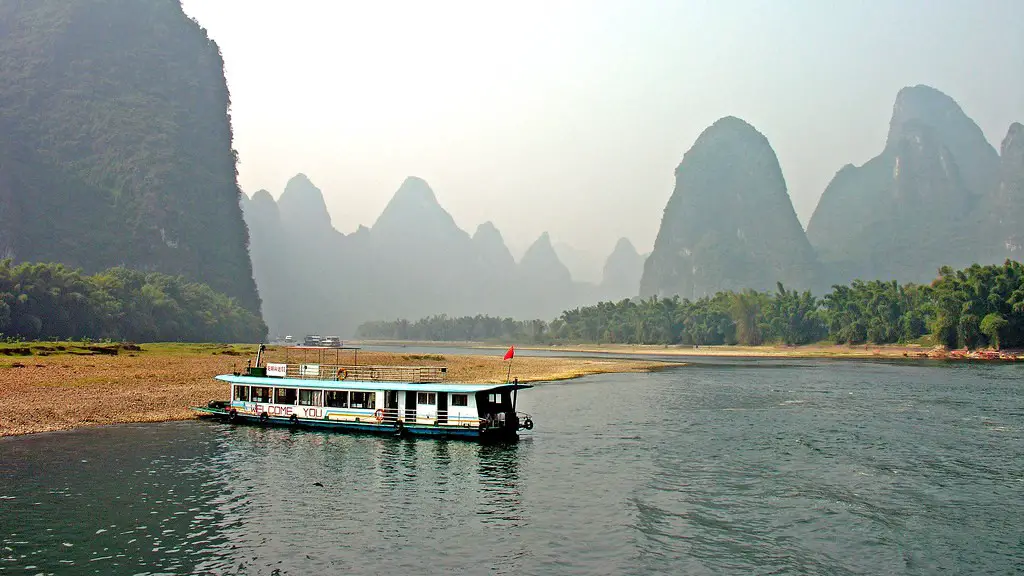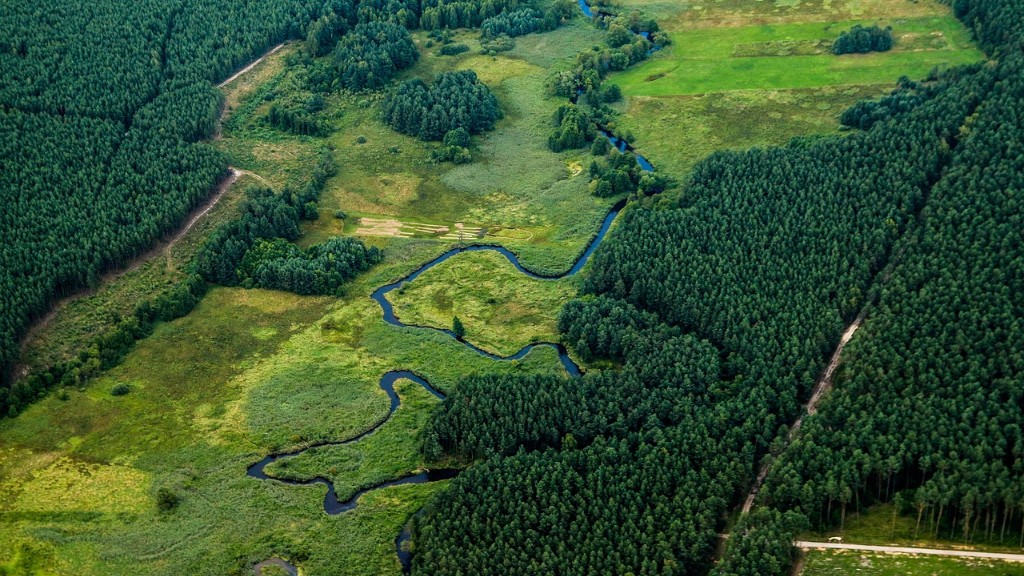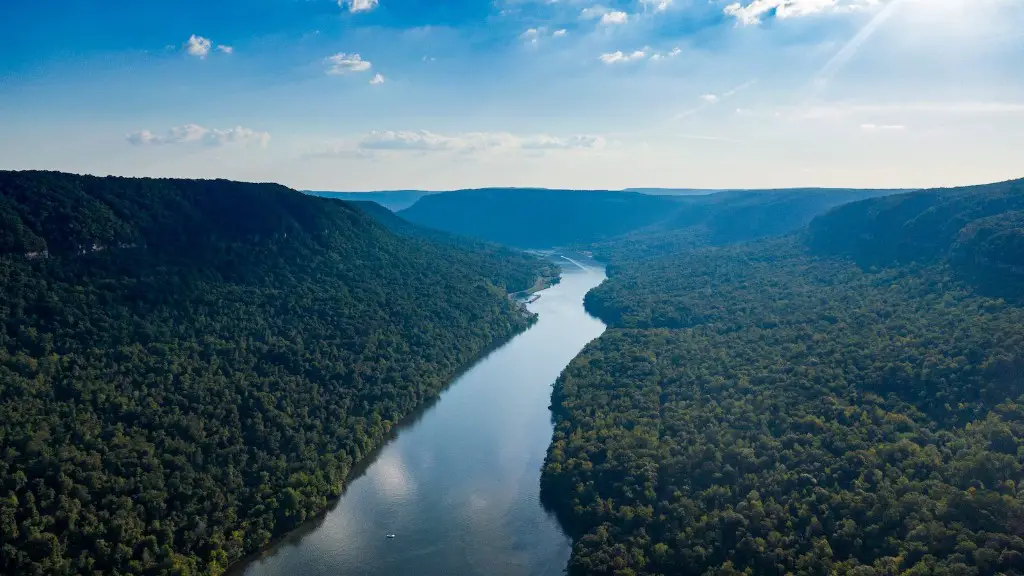The Yangtze River is the longest river in China, and due to its industrialization, it is also one of the most polluted. This pollution has tainted the environment and the health of the Chinese people, as pollutants have entered into their water supplies, crops, and fisheries. This pollution has caused a multitude of issues, and it will take drastic action to repair the damage and prevent it from continuing.
One of the major issues associated with the Yangtze River pollution is the health of those that live in affected areas. There is plenty of evidence suggesting that pollutants from the river are entering into the air, which increases the risk of people in the area developing serious respiratory illnesses. A recent study showed that babies born in regions near the river are much more likely to develop asthma, and the scientists conducting the study suggest pollution from the Yangtze River is to blame.
Another problem caused by the pollution is the destruction of the local ecosystem. For generations, Chinese people have relied on the Yangtze River for nutrition and sustenance. The river contains a plethora of fish and other aquatic life, however the pollution is threatening their livelihood. Scientists have observed a substantial decline in the biodiversity, as many species have been unable to survive in the tainted waters.
The governments and various organizations have developed plans to help mitigate the effects of the Yangtze River pollution. One approach is to create water treatment and purification plants, which will help clean the polluted water so it can be used by local communities. This can be beneficial, although not all pollutants can be filtered out by such systems. Organizations are also undertaking educational campaigns, to help teach people about the effects of pollution and what actions they can take to help preserve the environment.
The Yangtze River is an essential part of China’s ecosystem and history, and its pollution threatens this. Unfortunately, the damage that has been done cannot be reversed overnight, so it is essential that action is taken to prevent the pollution from worsening. All parties, from the government to local environmental groups, must collaborate to protect the Yangtze and its people.
Environmental Impact
The environmental impact of Yangtze River pollution is tremendous and must be addressed. The river supports millions of people who rely on its resources, but if the pollution continues, this could become impossible. The presence of pollutants in the water can have a profound effect on its inhabitants, with some species at risk of extinction due to the contaminated habitat.
Animals that depend on the river are also feeling its effects. As the pollutants make their way into the water, they can have an adverse effect on fish, birds, and other aquatic life. Furthermore, humans can also be affected by the contaminated water, as the pollutants can make their way into food sources, resulting in illness.
Thankfully, measures are being taken to help protect the environment from the effects of Yangtze River pollution. Governments and organizations are implementing fairer regulations, as well as enforcing them. The Chinese government has enacted tougher standards for businesses and factories that are located near or around the Yangtze, as well as tighter control over dumping into the river.
Environmental organizations are also playing a major role in the battle against Yangtze River pollution. They are tirelessly working to raise awareness and promote better practices around the river, while also encouraging the government to implement more effective measures to protect the environment.
Economic Factors
The Yangtze River pollution is starting to take a toll on the local economy, with businesses in the area losing money due to the lack of tourists. While the water is still used for travel and trade, the presence of pollutants has led to a decrease in visitors. Furthermore, many fishermen and farmers in the region are struggling to make ends meet, as their yields are diminished by the presence of pollutants.
In an effort to combat this, the Chinese government has devised plans to stimulate the economy by investing in clean energy technology and renewable resources. This includes wind and solar energy, which is an efficient way to decrease pollution and promote sustainability. Additionally, the government is providing economic incentives to businesses and investors willing to invest in the region, in order to help bring more money into the Yangtze Basin.
Furthermore, organizations are devising strategies to promote sustainability, by offering free seminars, workshops, and training on eco-friendly practices. These initiatives help people become more informed about green initiatives and better understand the effects of pollution. By providing education and opportunity to the people near the Yangtze, this pollution crisis can be combated in a more effective and efficient manner.
Social Factors
The Yangtze River pollution has a significant impact on the social environment of China, and is creating a divide between those affected by the contamination and the rest of the country. The people living in the region are feeling the damage, as the pollutants make their way into their water systems and the fish, crops, and game that they rely upon.
Environmental activists are raising awareness by publicly demonstrating and holding events, such as river-side clean-up operations. This is helping to educate people on the dangers of pollution and the importance of protecting the environment. Furthermore, local governments have begun taking more drastic measures to reduce the issue, such as issuing fines and stricter regulations to any companies or individuals polluting the river.
The economic and health effects of the Yangtze River pollution are hard to ignore, however, there is some progress being made. The Chinese government is taking more responsibility for the environment and recently pledged a billion yuan to clean up the river. This investment could help restore some of the damage done and develop better practices for sustainable development.
Future Solutions
In order to prevent further damage from the Yangtze River pollution, there must be a concerted effort to develop sustainable solutions. Governments must strictly enforce environmental regulations and ensure that the individuals responsible for violating them are held accountable. Organizations should also focus on creating public awareness opportunities to help inform people of the damage pollution is causing and how they can help to prevent it.
Additionally, technological solutions must be developed on both an individual and industrial level. Systems such as wastewater treatment plants and air filtration systems are crucial for cleaning up the environment, while sustainable energy sources such as solar and wind can help to reduce the use of toxic fuels. Furthermore, innovative practices such as eco-friendly farming and aquaculture can help to reduce the impact of pollutants on the environment.
The effects of Yangtze River pollution have been felt by millions, and the damage will take time to repair. Thankfully, by instituting better policies, stricter regulations, and enforcing them, future generations can be spared from the same trouble. It is essential that people in the near and far future realize the importance of preserving the environment and take steps to ensure it can be maintained.
Political Factors
Politicians have an imperative role to play regarding the Yangtze River pollution. Governments must work together to create sustainable policies, which can help to mitigate the effects of pollution. Policies must be created in order to monitor companies and enforce laws which are designed to protect the environment. These policies should be enforced and regularly updated in order to meet the needs of the growing population, with harsher punishments being issued to those who violate them.
The Chinese government has implemented a number of incentives to encourage businesses to be more eco-friendly, and this should be encouraged. Companies should be rewarded for their green practices and efforts to reduce their carbon footprints. Furthermore, governments should promote sustainable practices and not support those that further pollute the environment.
While the policies and regulations are only part of the puzzle, they are the first step towards repairing the Yangtze and its environment. Politicians must do their part to ensure that the policies created are adhered to, for without their enforcement, the efforts become useless. A unified effort from all levels of government must be made in order to keep the Yangtze River pollution from worsening.
Technological Solutions
In recent years, technology has become an essential tool in the fight against Yangtze River pollution. Companies are now creating innovative technologies which are capable of significantly reducing pollutants, such as water filtration systems, air filters, and smart irrigation systems. These technologies help to reduce the amount of pollutants that enter the water and the atmosphere, which can help to lessen the effects of pollution.
Similarly, renewable energy technologies are a great way to reduce emissions from factories and other sources. Solar and wind energy are becoming increasingly popular across the country, and this is helping to decrease the amount of pollutants emitted into the air and water. Furthermore, scientists and engineers are always exploring new technologies which could help to reduce pollution and increase sustainability in the region.
The implementation of these technologies can be expensive, however, there are incentives available through the government and organizations to help lower the cost. These initiatives help to promote sustainability and are proving beneficial, as more sustainable energy sources are being brought online.
Technology has become a vital asset in the effort to reduce Yangtze River pollution, and its continued development is essential if this situation is to be reversed. With the help of new technologies, it is possible to help clean up the river and its environment, as well as to help promote sustainable development.





